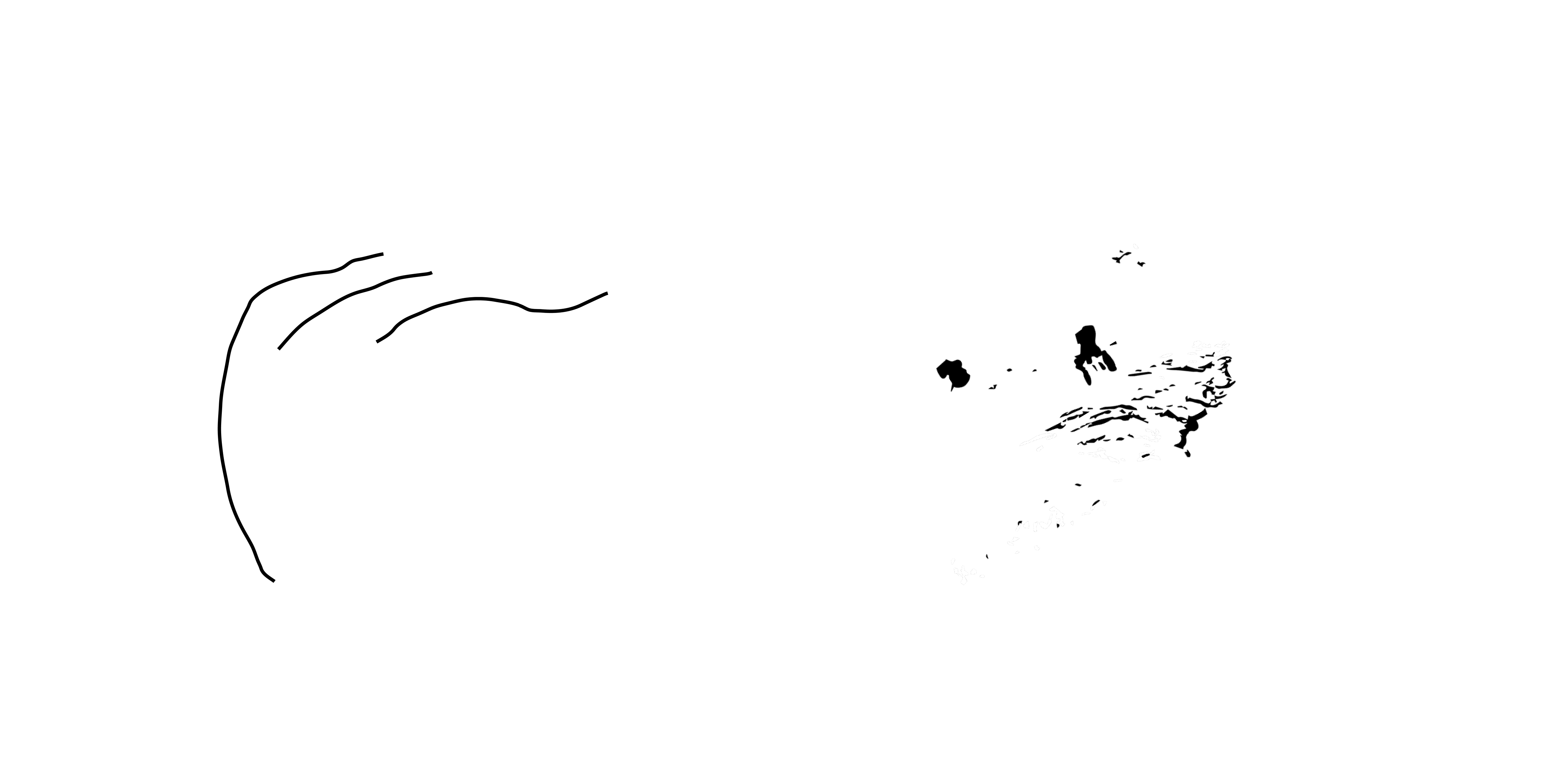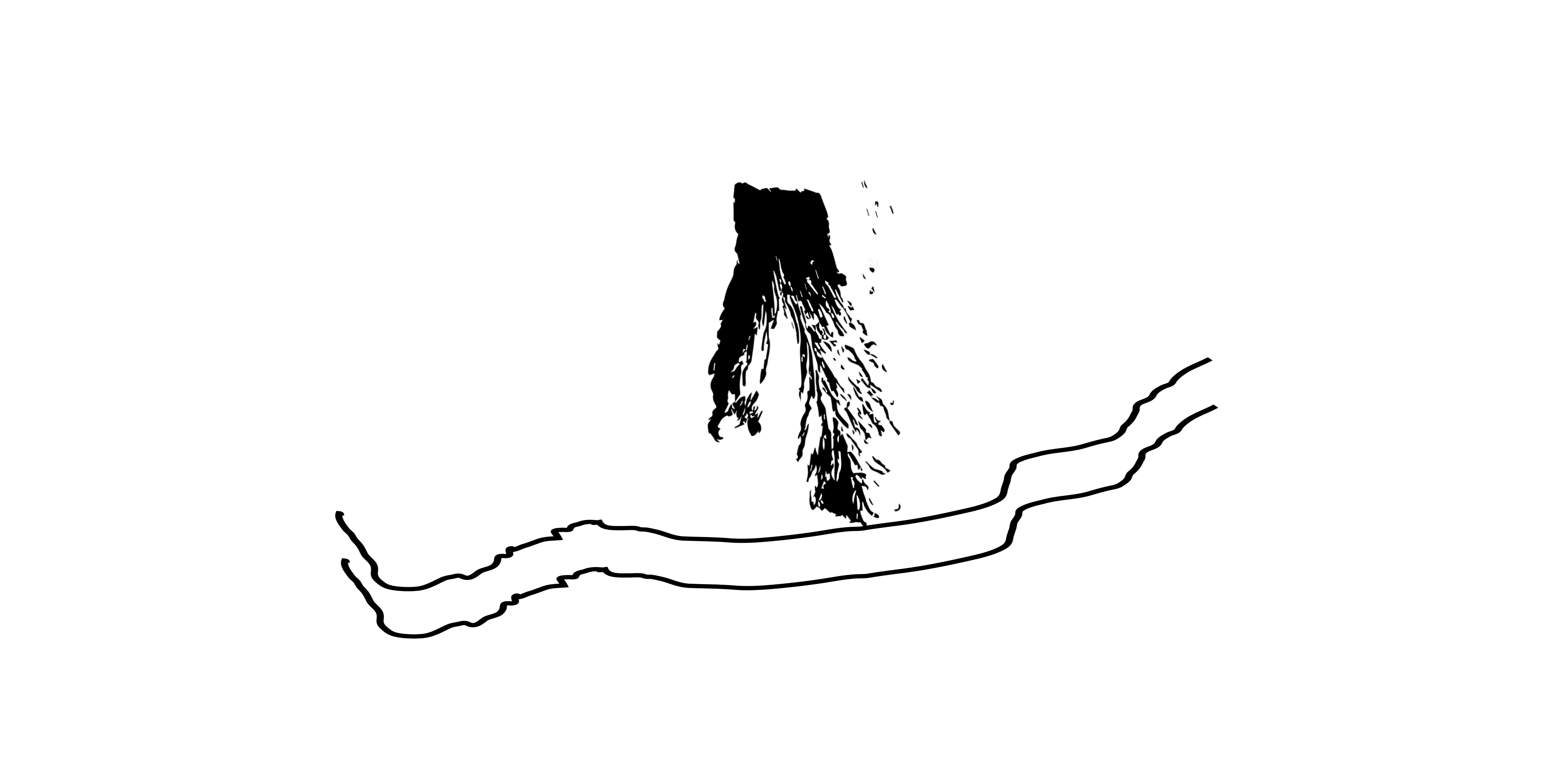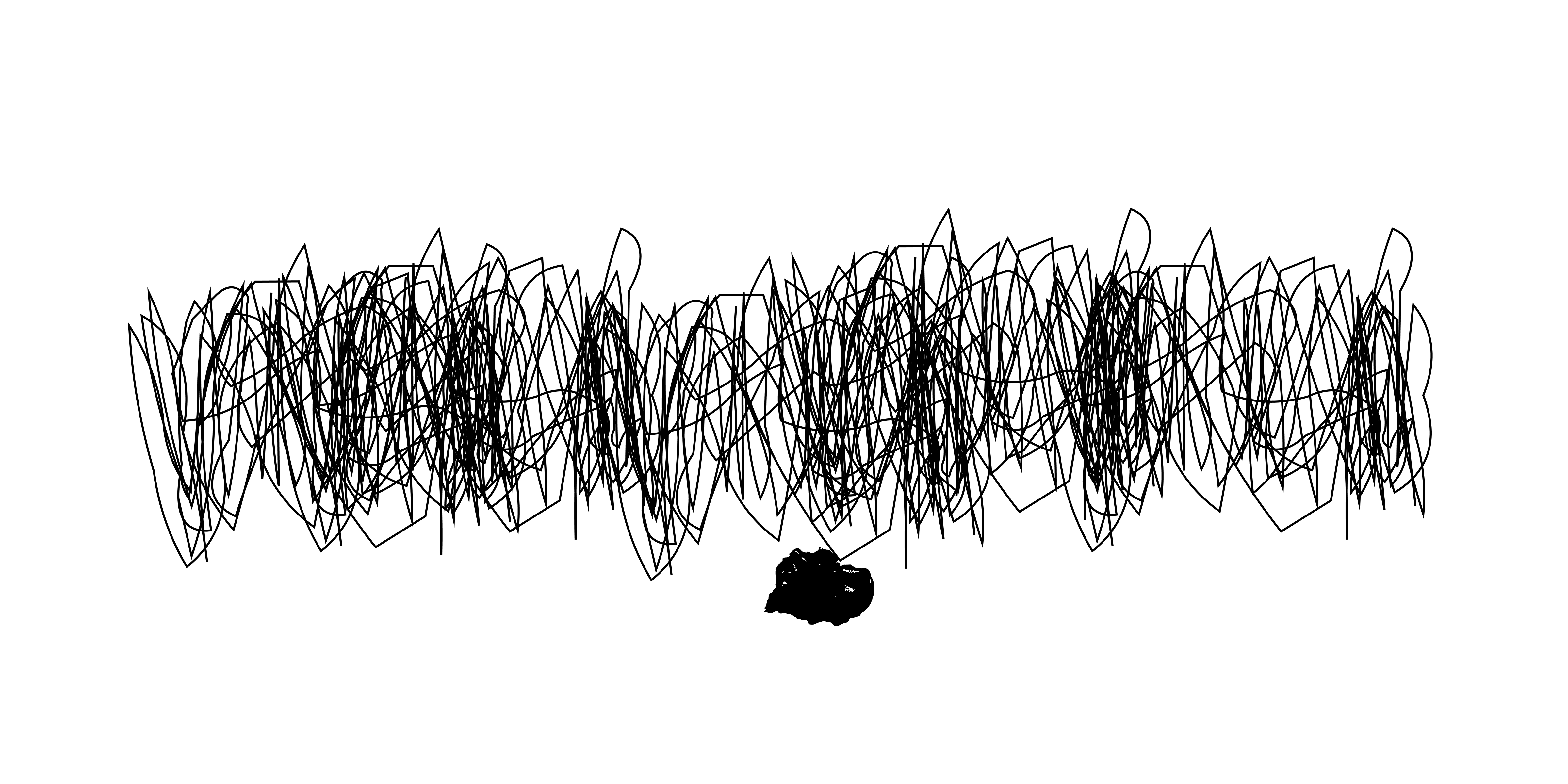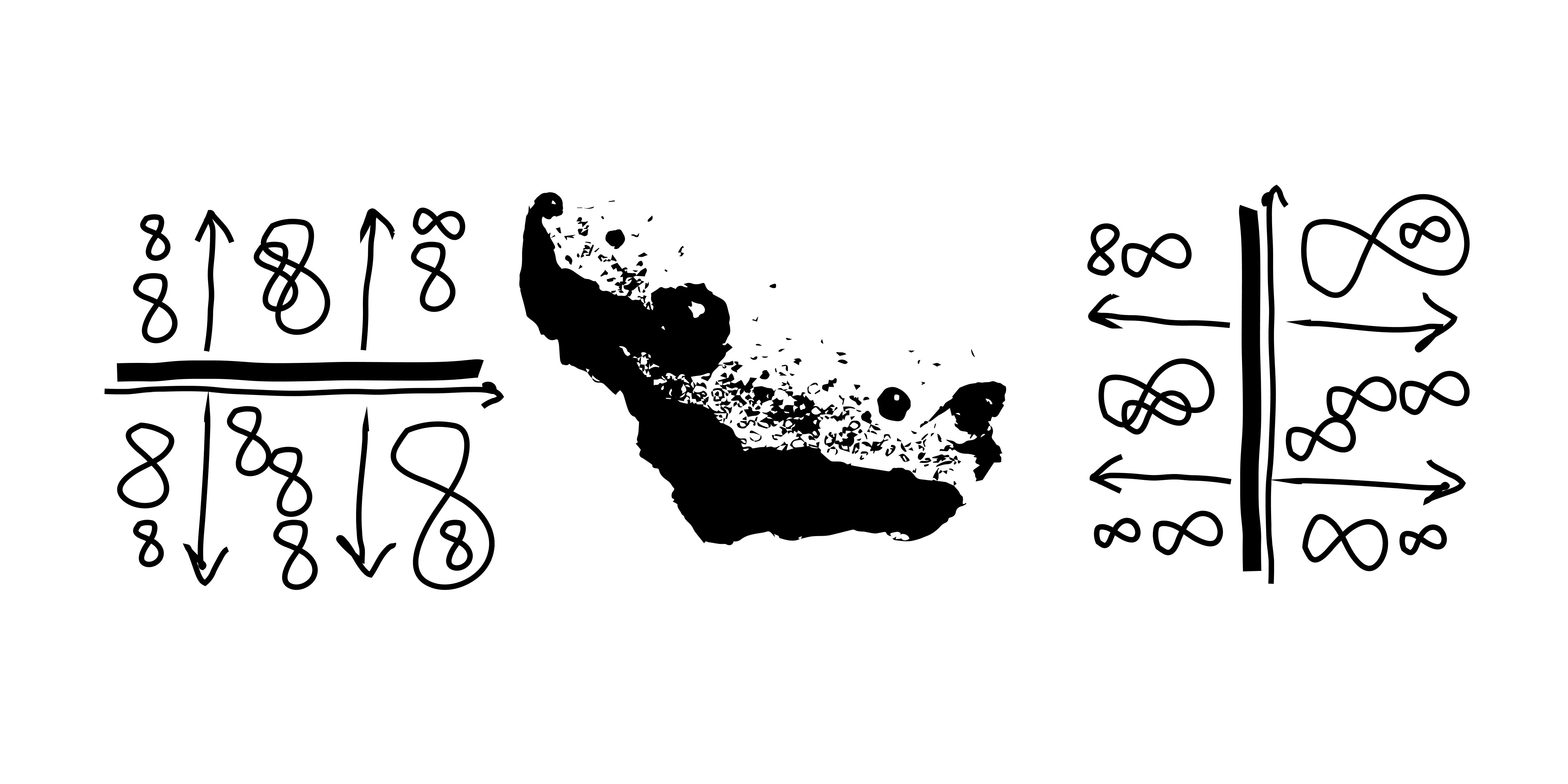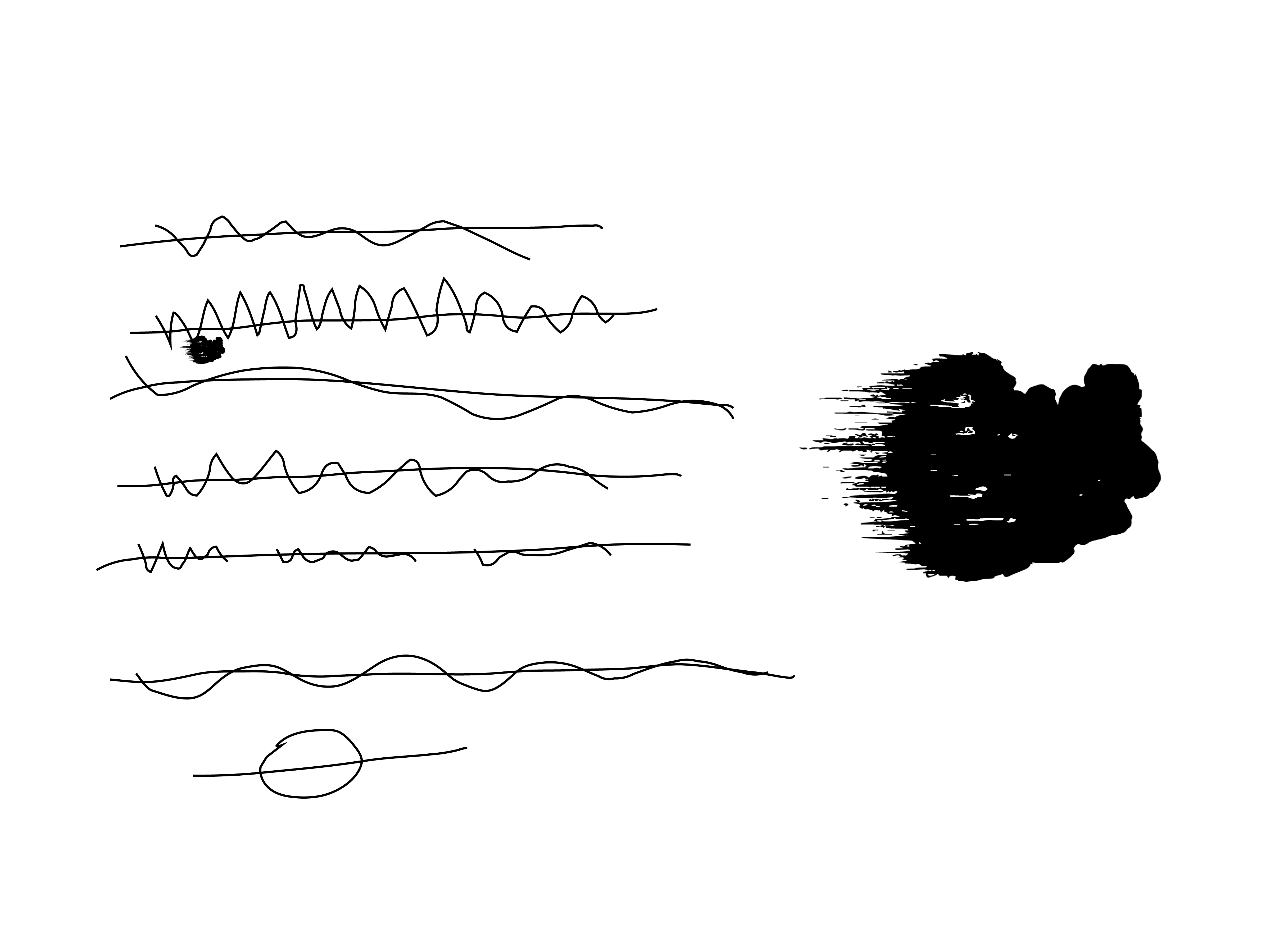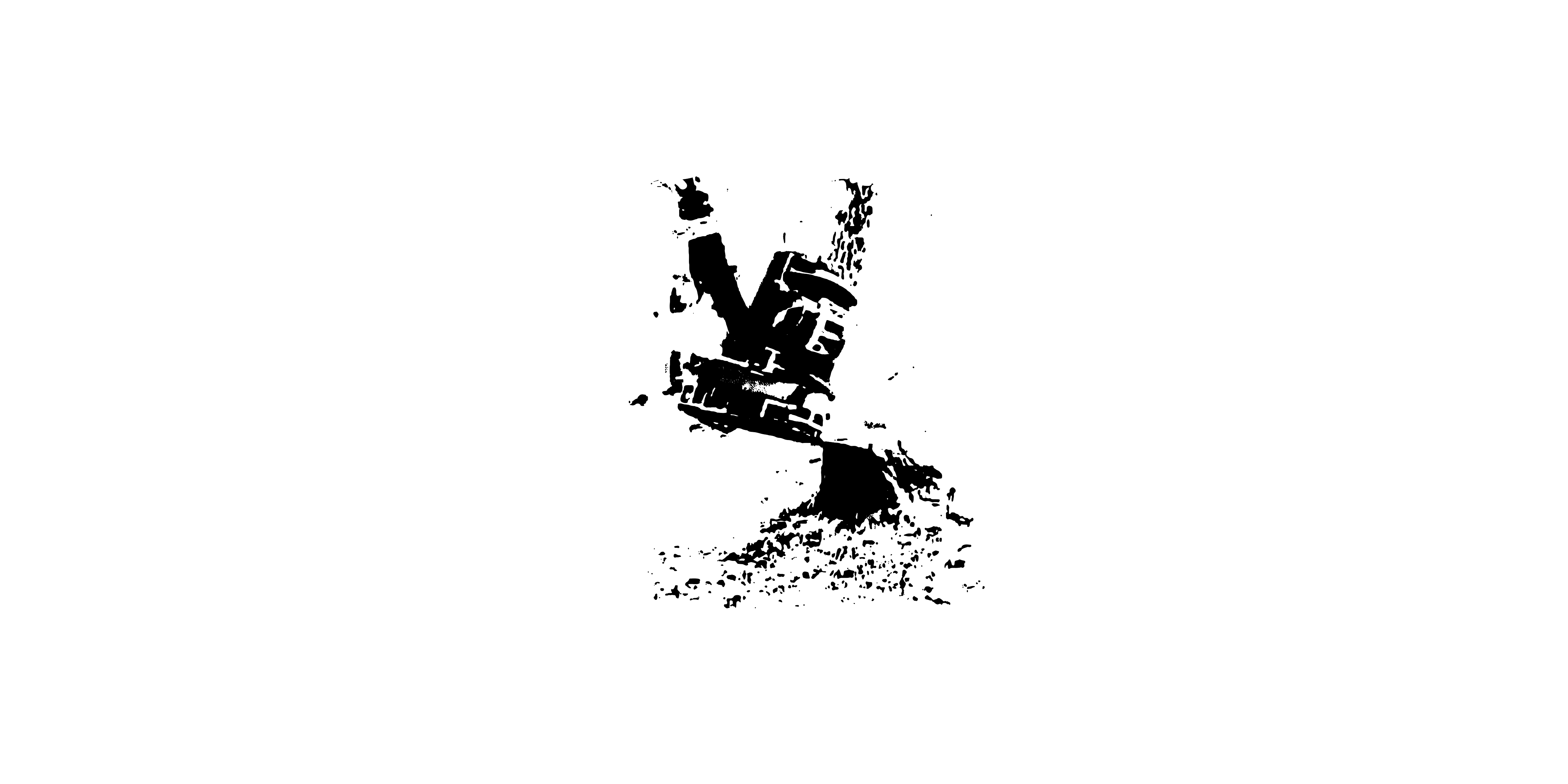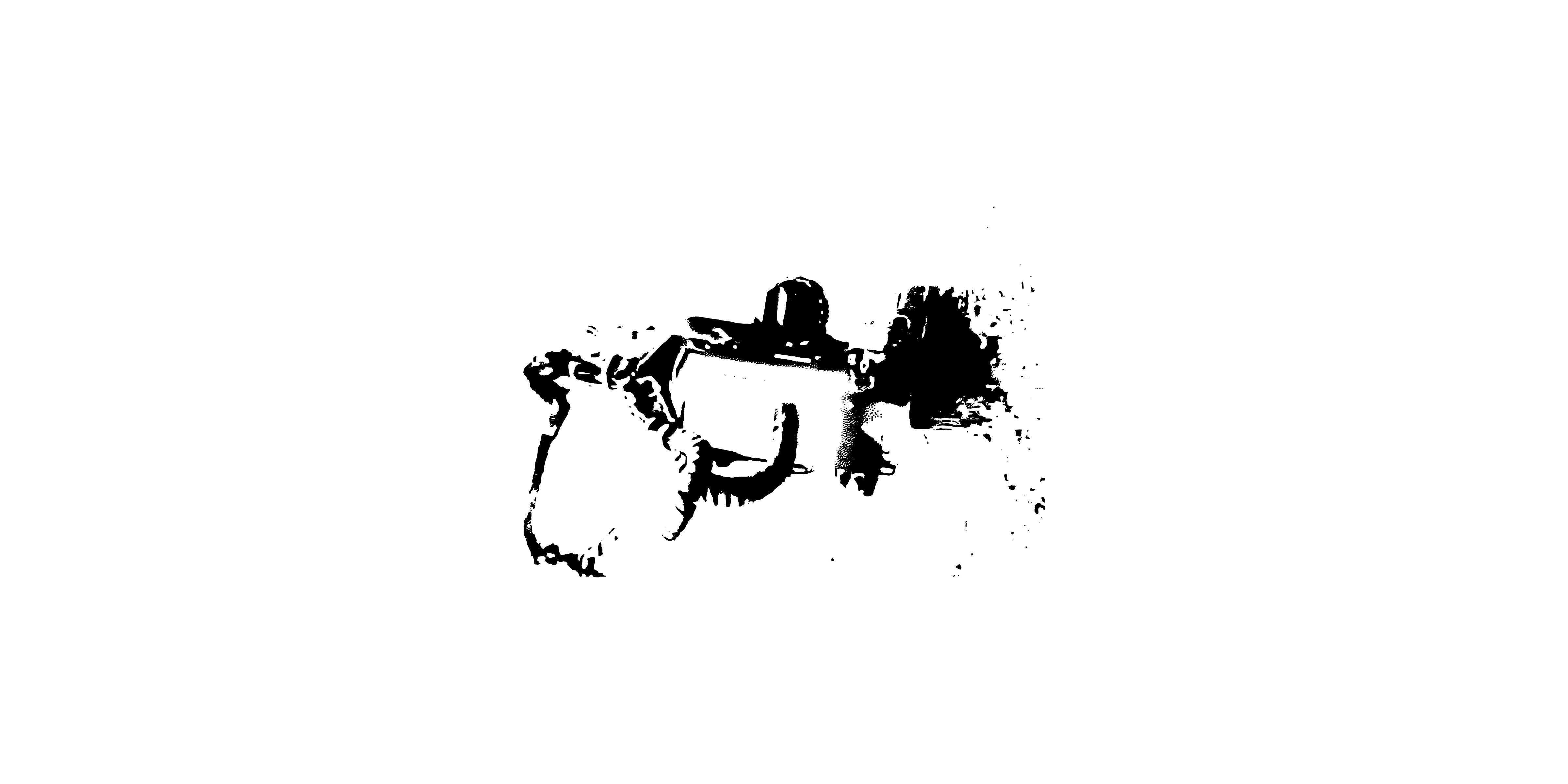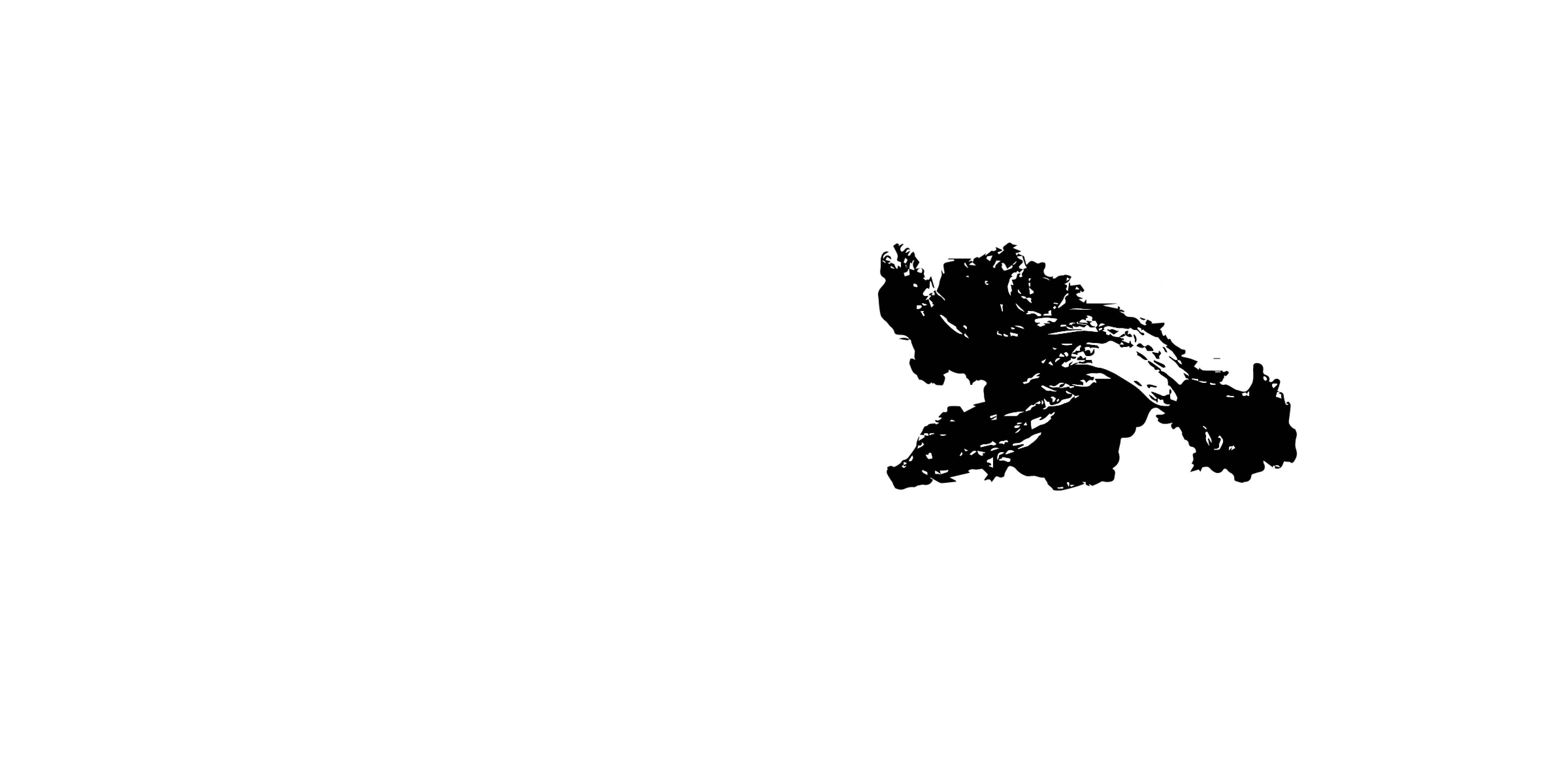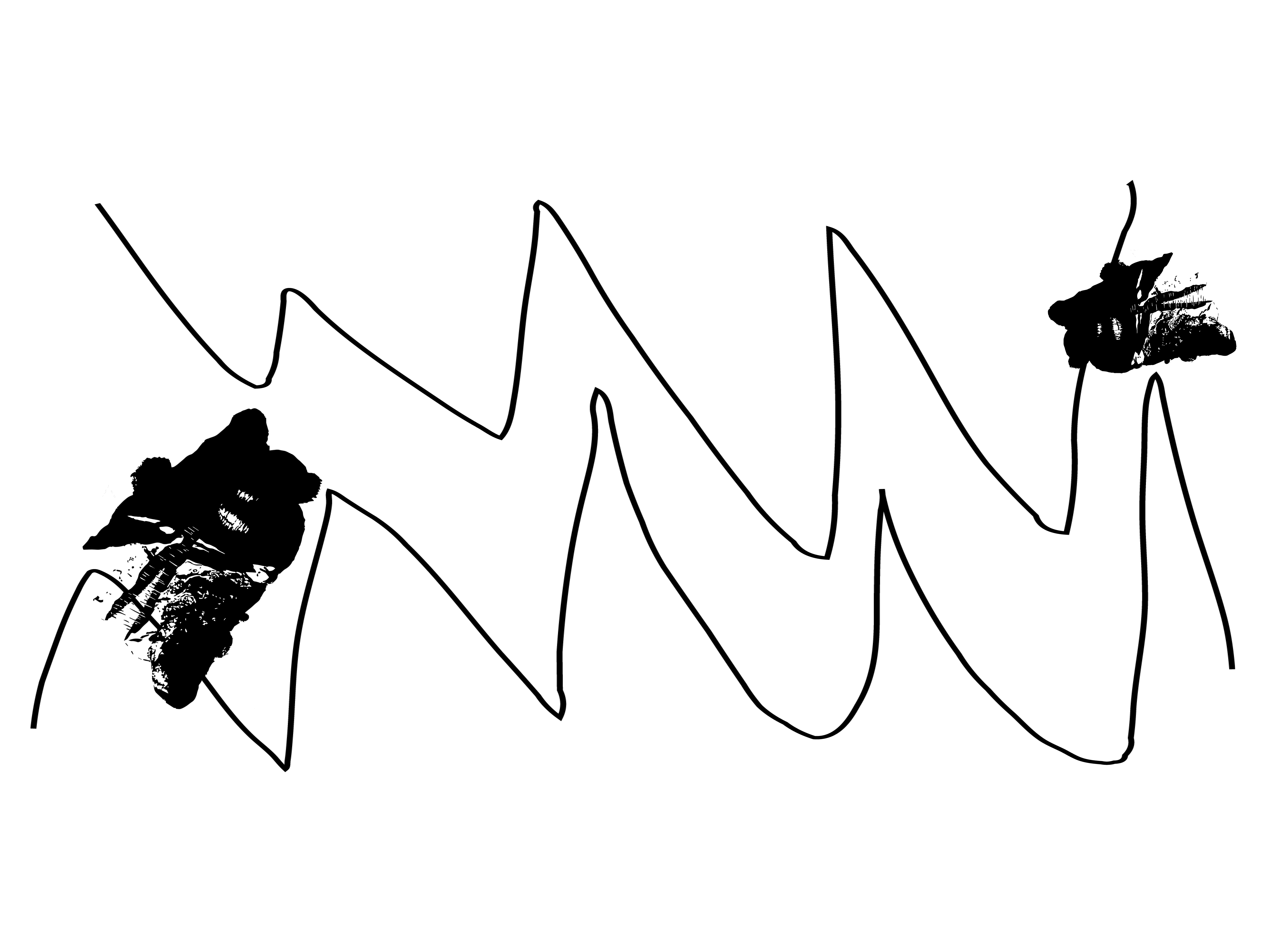HomeHumanMachineFailureSpiral
BY Anthony Cody

The poem begins driving through my paternal grandparents’ birth state of Oklahoma in the summer of 2017. I attempt to visit the Woody Guthrie Museum, but it is closed. I remember the shape of the text on his guitar, this machine kills fascists.
The poem begins en route to Fresno, CA, from Chicago, IL, while seeing remnants of the Dust Bowl that my grandparents fled nearly 80 years earlier, perhaps an extension of ancestral complicity in environmental collapse.
The poem begins on social media while watching a video of a logging processor machine quickly turn a dozen trees into a tidy pile of lumber in under a minute. I accept the initial del, of Cada día más cerca del fin del mundo, so as not to disrupt the repetition and enact new violences of language.
The poem begins in a collaboration with Juan Felipe Herrera. Throughout the pandemic the two of us have phone conversations, video chats, and pass the time in his garage searching through his archive for his art exhibition and the retranslation of his collection Akrílica. We imagine ways to extend the poem, to open the poem, to stay out of the way of the poem, to find ways to welcome others into the poem. We attempt to locate moments beyond the forms in our writing. He tells me about witnessing a corn harvest in Mexico, years ago. There in the ceremonial, everything became the poem. We ask: Can everything be alive in a poem? And, can a poem then exist in the infinite? Our collaboration finds no clear answers, only necessary questions.
This poem begins as a failed essay I started shortly after arriving back home in Fresno, CA, after nearly a year away.
This poem begins elusively. For nearly five years, I have been working on it. In my own foolishness, I tried to impose my vision upon the piece. I said to it, Be an essay.
Begrudgingly, the poem agreed. Suddenly the tone flattened. The imagery abandoned me. The urgency of climate collapse and the recursive ache and denial of the man-made Dust Bowl turned into a whimper. Even the visceral horror of the logging machine decided to return a fatalism and acceptance, rather than an intervention. Meanwhile, the title, Cada día más cerca del fin del mundo, remained spilling over and again in my mind.
Each week of the pandemic, I’d open the essay and attempt to the solve the problem. The last iteration of the essay’s opening proved critical for me in the transformation:
I cannot. I cannot begin. I cannot begin because I am distracted.
No, I am not distracted — distracted means I am looking away: rather I am looking closely and I am devastated.
I am devastated by witnessing a logging machine annihilate a tree on social media. I watch the same clip for an hour. I do not look away. In the time that I have been witnessing a tree meet its end, I imagine a squadron of these machines buzzing a mountain hillside or cleaving open a jungle canopy, making way for the fracking, for the resources, for the server farms, for whatever brutality the colonial capitalist imagination can conjure upon the land. I imagine the efficiency of the research and development of a mechanism designed to remove a living organism and place it in a quiet pile ready for sale.
There are no fables or tall tales in which the hero challenges the machine in a game of deforestation and manages to outsmart or outwork the machine—this is the Anthropocene, our collective geological epoch.
There are no heroes. There are no limitations to the consumption. There is only a denial by much of humanity on humanity’s complicity, which translates as every day closer to the end of the world.
In my insistence on being the poet/essayist, I had managed to make myself the hero, to assume that I knew better than the poem. Perhaps this is in the western colonial imagination: the belief and delusion to consider that we know better than any and all things that surround us.
As a result, for nearly two years I would attempt to move paragraphs, rewrite conclusions, and trim an essay that clearly required no hero, but rather needed to be left alone to wander toward the form it needed.
This realization had me abandon everything and return to the phrase and image that felt most poetic and urgent: Cada día más cerca del fin del mundo and the logging machine. How the two haunted me and left me without rest. I began with an image of a logging machine, which I steadily manipulated and degraded until it arrived on the page as a specter of defiant futures.
My first attempt was static and lacked inertia. Passive, rather than haunting.
My second, and final attempt, stopped me when the energy of a scythe appeared. The dread and the explosive movement were the visual energy needed to enter into the poem, or rather, the cue to continue.
Once the image showed itself, the language moved quickly. The visceral language of my grandfather’s work as a butcher. The impacts of increased global temperatures. The entanglements and complicity of capitalism and climate. The unceasing and widening realities.
The final element was continuing to explore a poetic form that Juan Felipe Herrera and I have been working through during our pandemic collaborations, the “infinite poem.” A poem that has a source line, and from it language blooms above and takes root below. The result in the form is a poem that can be read up/down, left/right, and center line outward. However, to continue in that exploration of the infinite, I decided that the infinite poem would be nestled as a portion of the larger poem, to continue the conversation of what can bloom and root.
This poem begins as a map, a mix, an urgent sample toward an annihilation, not of the self or of the earth, but of the things assembled to destroy.
The poem begins. The questions remain.
Wholeness?
Anthony Cody is from Fresno, California, with lineage in the Bracero Program and Dust Bowl. His debut...
Read Full Biography


